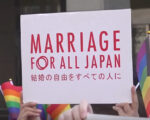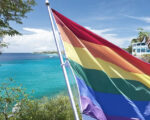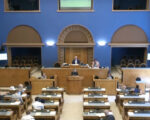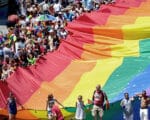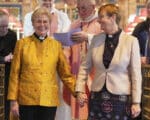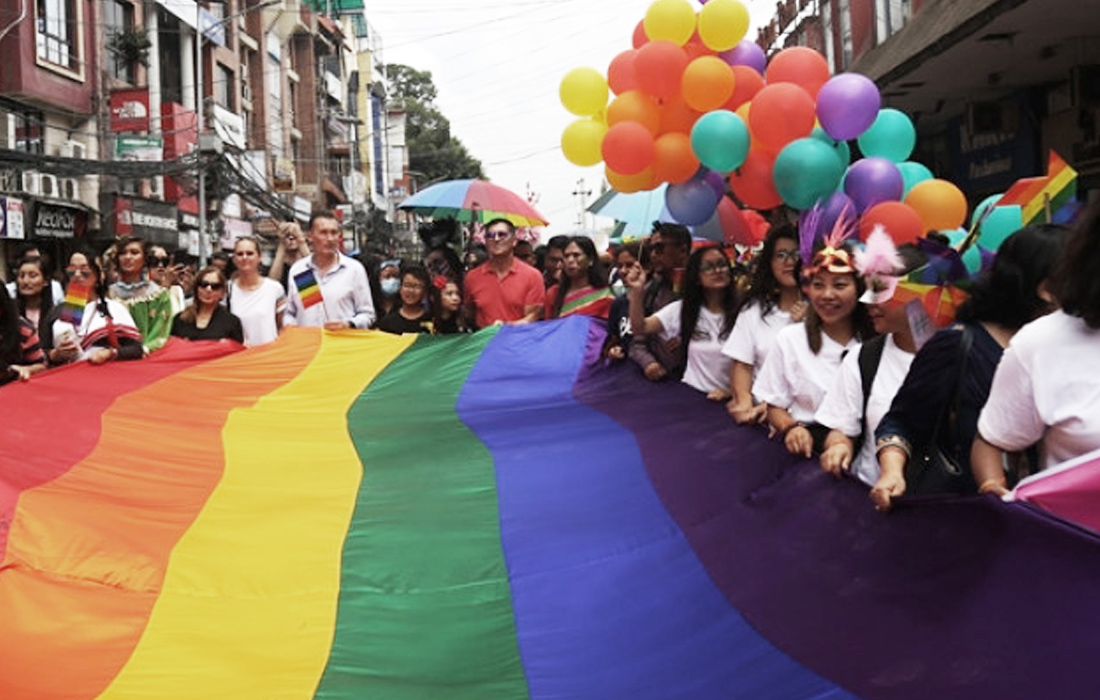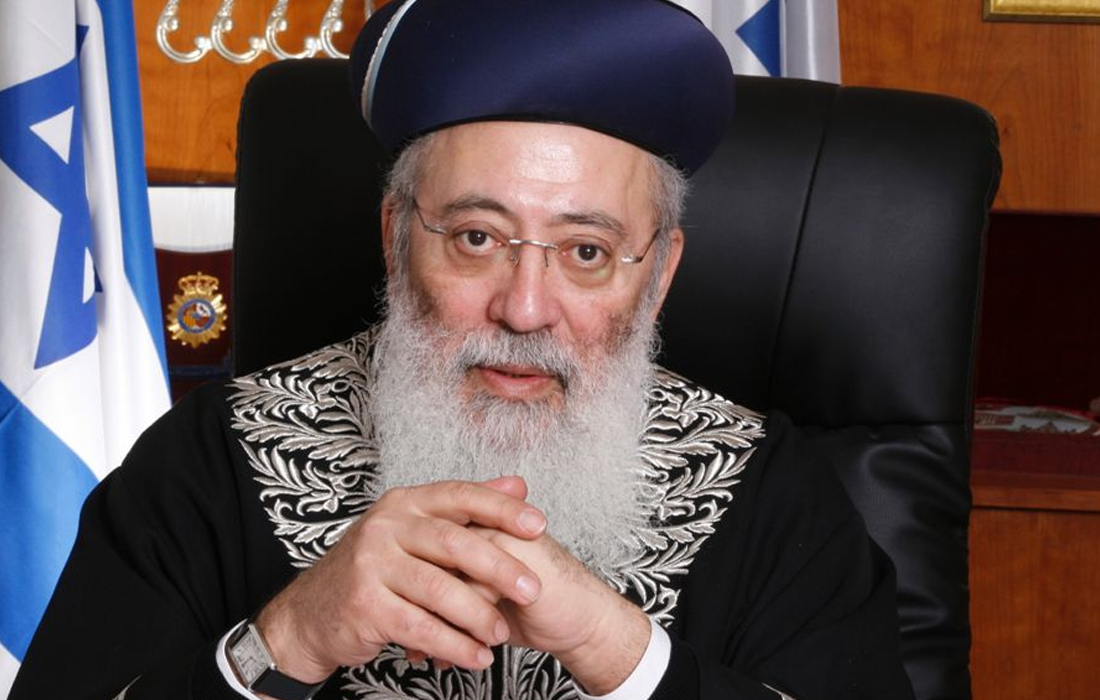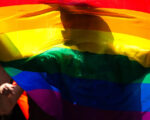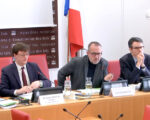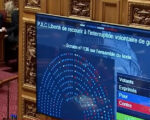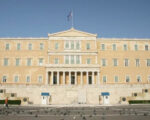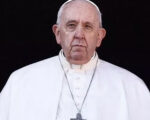>> First priest to defy Church ban on gay marriage for clergy
Un prêtre qui épouse son compagnon athée par amour, un autre qui s’unit à un migrant musulman pour lui obtenir des papiers : l’Eglise d’Angleterre est confrontée à la question du mariage des homosexuels après plus de 500 ans d’histoire.
L’histoire d’amour du père Andrew Cain intervient au moment où un autre mariage homosexuel interpelle l’Eglise d’Angleterre : celui du père Edward Minchew, prêtre catholique, et de Mustajab Hussain, un pakistanais, musulman.
“Nous avons confirmé la salle et réservé le restaurant. Ravi. Ce jour sera fantastique. Reste plus qu’à prier pour avoir du soleil”. Sur son compte Twitter, Andrew Cain fait part d’une impatience somme toute classique chez un futur marié. Mais il n’est pas un fiancé ordinaire. Contre l’avis de l’Eglise anglicane, il deviendra en juin le premier prêtre de l’histoire de cette église, vieille de 500 ans d’histoire, à épouser un autre homme, rapporte The Daily Beast (en anglais), lundi 24 mars.
Une union qui fait scandale au sein de ce culte qui autorise les “vicars” (équivalent de pasteurs) à se marier, mais qui a refusé de reconnaître la loi sur l’union des homosexuels, tout juste adoptée en Grande-Bretagne. Ainsi, le père Cain n’a même pas la permission de célébrer un mariage entre deux personnes de même sexe.
Un débat et (peut-être) des sanctions
“Ignorant la consigne, Cain, 50 ans, et son fiancé Stephen Foreshaw, 40 ans, ont officiellement déposé leur demande de se marier à la mairie de Camden, à Londres, la semaine dernière”, écrit le site américain, qui précise que l’homme qui partage la vie du religieux est, quant à lui, athée.
Cet affront pourrait déboucher sur des sanctions, voire sur une expulsion de l’Eglise, selon un officiel du clergé, cité par The Daily Beast. En attendant, il met à jour les divergences au sein de cette Eglise qui a déjà opéré un changement fondamental en 2010 en autorisant les femmes à devenir pasteurs.
Un “mariage gay” antérieur entre un prêtre et un migrant musulman ?
L’histoire d’amour du père Andrew Cain intervient au moment où un autre mariage homosexuel interpelle l’Eglise d’Angleterre : celui du père Edward Minchew, prêtre catholique, et de Mustajab Hussain, un pakistanais, musulman. Un mariage “blanc”, ce dernier cherchant à obtenir des papiers pour travailler en Grande-Bretagne, explique The Daily Mail (en anglais), lundi. Une union civile scellée en 2008, à l’époque où le père Minchew appartenait à l’Eglise anglicane. Il l’a en effet quitté en 2010, pour protester… contre l’ordination des femmes.
Selon le quotidien britannique, il a été suspendu par ses supérieurs au sein de sa nouvelle Eglise.
>> Church of England facing stand-off with its own clergy as first priest openly defies ban on gay clerics marrying
The Church of England is facing a rebellion within its own ranks over same-sex marriage after a vicar became the first priest to publicly defy its ban on gay clergy marrying.
Father Andrew Cain, vicar of two large parishes in north-west London, said he would not be “frightened” into cancelling his wedding to his long-term partner, Stephen Foreshew, by the prohibition.
An acrimonious row broke out within the Church of England two weeks ago after the House of Bishops decided, during a meeting behind closed doors, to ban gay clergy from marrying when same-sex marriage becomes legal later this month.
The decision was applauded by traditionalists and several primates overseas but infuriated liberals in the Church.
Although the Church of England officially objected to the legalisation of gay marriage and has opted out of performing the weddings, there have been growing signs of a more relaxed stance on homosexuality.
It is about to begin a process of discussion potentially leading to special services to bless same-sex relationships in Anglican churches – although the term “blessing” will not be used for theological reasons.
But the bishops ruled that although gay and lesbian parishioners can ask their priest for special prayers after their wedding, it will not be considered “appropriate conduct” for anyone in holy orders to marry someone of the same sex.
Anyone who defies the ban could face lengthy disciplinary measures. But one bishop has already said this might not mean being defrocked, suggesting they could potentially minister while defying the ban.
Rev Cain, the Vicar of St Mary with All Souls in Kilburn and St James in West Hampstead, announced his engagement to friends on the same morning as the bishops’ decision emerged.
He told The Telegraph that not only will he press ahead with his plans but expects at least two bishops to be among their guests.
The couple, who are currently in the process of setting a date, also hope to have an informal celebration with Rev Cain’s parish.
“We are hoping it will be early summer when the weather has improved but we are going to do it, there is no doubt about it,” he said.
“We have been together for 14 years, we have waited a long time for the opportunity, I was there outside Parliament when the bill was passed so why wouldn’t I?
“I wasn’t planning to take a stand publicly quite honestly, I was just planning to get married, the bishops have made it an issue not me – I was just getting engaged which is my legal right.”
The couple, who are currently abroad, previously exchanged rings and had their relationship blessed in an informal religious ceremony but chose not to enter a civil partnership as they were awaiting the chance to marry.
“For the marriage itself, if there is something it won’t be a formal service in church,” he said.
“But I am absolutely sure that both my parishes, which expressed great delight for me and Stephen after 14 years, will want there to be some sort of marking of our marriage with my parish.
“Which priest would get married and not celebrate with their parish?”
He said the ban had already damaged the authority of bishops.
“The bishops have really rattled people’s cages,” he said.
“It has frightened the clergy and some of them have said they are not going to get married, I know that a number of people have left the Church but I also know that a number of us are going to go ahead and deal with the consequences.”
But he added: “They can’t frighten me, the legal procedures for defrocking somebody are extraordinarily complex and expensive and very public ….to try to defrock someone simply for exercising their rights as a United Kingdom citizen would be extraordinarily bad publicity.
“I don’t know what they are going to do – they are going to have to find some way of doing something to save face but without exposing the Church to further bad publicity, particularly after last year’s debacle over women bishops and the trouncing we received in the media.”
Meanwhile 24 academics and clerics, including some of Britain’s foremost authorities on church history, have written to the bishops arguing that their pastoral statement, which banned gay priests from marrying, was based on a false reading of history.
The document claims that the introduction of same-sex marriage is the first time that there has been a divergence between the official legal definition of matrimony and that recognised in church law.
But the academics, including Oxford’s Professor Sir Diarmaid MacCulloch, argue that the two definitions have differed in the past, most significantly in relation to divorcees who remarried.
francetvinfo.fr




